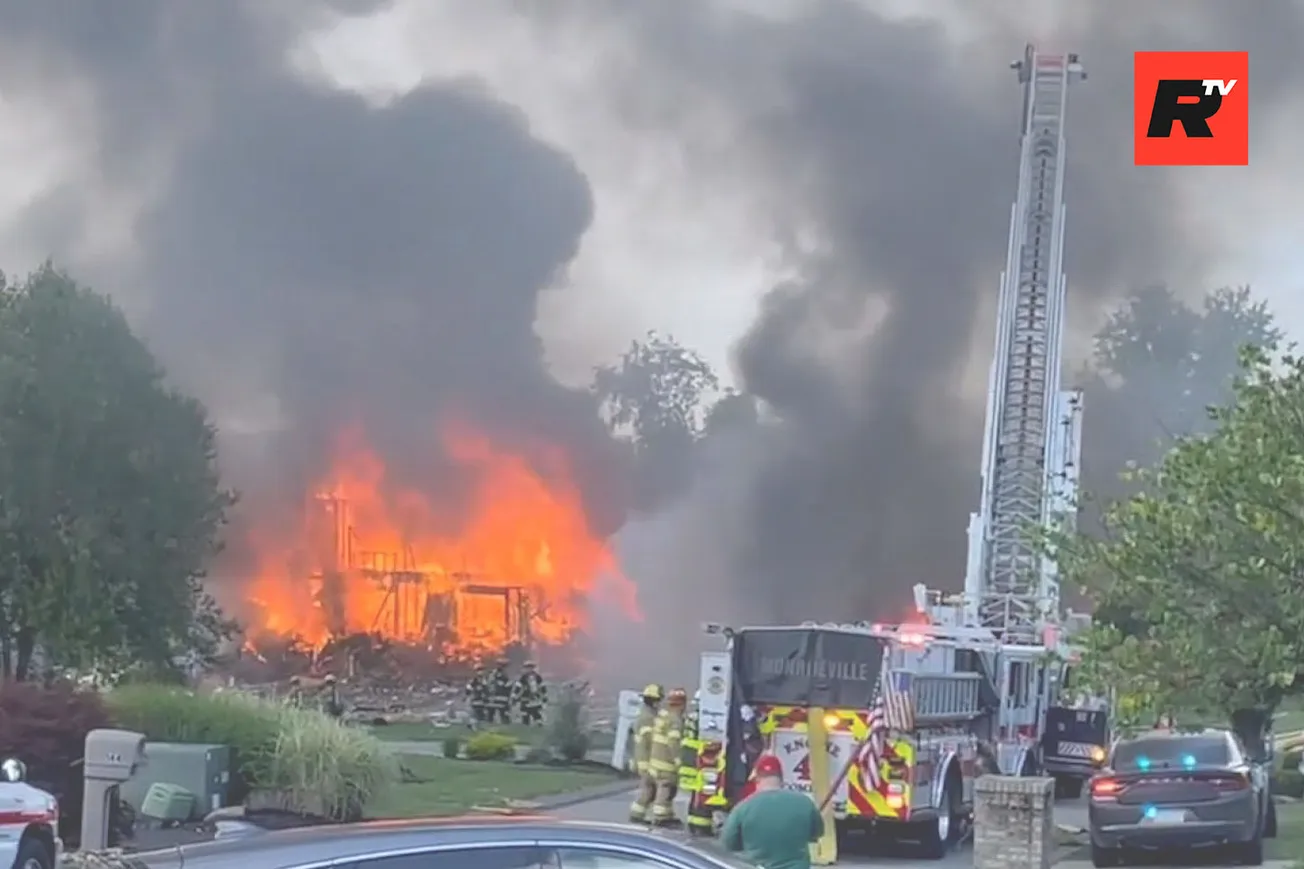Table of Contents
In a nation already battered by economic turmoil and supply chain chaos, another devastating blow strikes at the heart of American industry.
A powerful explosion rocked the Clairton Coke Works, a U.S. Steel facility along the Monongahela River south of Pittsburgh, on Monday at approximately 10:51 a.m., leaving dozens injured and an unknown number of workers trapped beneath debris.
Emergency responders are racing against time to rescue those caught in the wreckage, with Allegheny County Emergency Services confirming that five individuals have been transported to medical facilities.
Details about the condition of those transported remain undisclosed, with authorities describing the situation as an "active scene."
BREAKING: 🚨 Massive explosion at U.S. Steel Clairton Coke Works in Pennsylvania.
— E X X ➠A L E R T S (@ExxAlerts) August 11, 2025
Mass casualty incident declared.pic.twitter.com/4MyqoBcy4i
"There are no confirmed fatalities at this time," said Abigail Gardner, director of communications for Allegheny County, in a statement to the press. "Our focus is on supporting the ongoing rescue efforts and ensuring the safety of the community."
Pennsylvania Governor Josh Shapiro addressed the crisis on X, stating, "My Administration is in touch with local officials in Clairton, PA as they respond to an explosion at US Steel Clairton Coke Works plant this morning. The scene is still active, and folks nearby should follow the direction of local authorities. Please join Lori and me in praying for the Clairton community."
My Administration is in touch with local officials in Clairton, PA as they respond to an explosion at US Steel Clairton Coke Works plant this morning. @PEMAHQ and @PAStatePolice are in touch with first responders and have offered all assistance.
— Governor Josh Shapiro (@GovernorShapiro) August 11, 2025
The scene is still active, and…
The Clairton Coke Works, the largest coking operation in North America, is a critical component of U.S. Steel’s operations, processing raw coal into coke, a vital material for steel production.

"I've been talking with USW and US Steel officials to get more information. There is an active search and rescue underway, dozens injured, and per police there's at least one unaccounted for," Sen. John Fetterman said in a statement Monday.
UPDATE:
— U.S. Senator John Fetterman (@SenFettermanPA) August 11, 2025
I was just on-site at the Clairton Coke Works.
I’ve been talking with USW and US Steel officials to get more information.
There is an active search and rescue underway, dozens injured, and per police there’s at least one unaccounted for.
The facility is one of four major U.S. Steel plants in Pennsylvania, employing thousands of workers in a region historically tied to the steel industry.
Monday’s explosion marks another troubling incident at the plant, which has faced scrutiny in recent years for safety and environmental concerns.
In February, a "buildup of combustible material" at the plant’s battery ignited, causing a loud "boom" and sending two workers to a local hospital for first aid after material entered their eyes, according to the Allegheny County Health Department.
The workers sustained no serious injuries, but the incident raised alarms about operational safety.

The facility has also been dogged by environmental controversies, including a 2019 settlement of a 2017 lawsuit for $8.5 million, which required U.S. Steel to invest $6.5 million to reduce soot emissions and noxious odors.
Additional lawsuits have accused the company of violating clean air laws following a 2018 fire that damaged the plant’s sulfur pollution controls.
The explosion comes amid heightened attention to U.S. Steel following its "historic partnership" with Nippon Steel, finalized in June after a contentious $15 billion buyout proposal.
The deal, which faced national security concerns and political pushback in the battleground state of Pennsylvania, grants the U.S. government oversight in certain operational matters.
The transaction was approved by U.S. Steel shareholders over a year ago but was delayed by regulatory and political hurdles.
This latest disaster cannot be viewed in isolation. Under the Biden administration, America’s industrial and food production sectors were rocked by an alarming series of fires, explosions, and closures.
From 2021 to 2022, over 100 U.S.-based manufacturing facilities, including food processing plants, farms, and industrial sites, were damaged or destroyed by incidents often described as "“accidental" or "inconclusive."
Notable examples include a January 2021 fire that obliterated a 75,000-square-foot processing plant in Fayetteville, a July 2021 three-alarm fire at a Kellogg plant in Memphis, and a February 2022 fire that swept through Wisconsin River Meats in Mauston.
The list goes on, with millions of chickens, turkeys, and other livestock destroyed in fires and disease-related culls, further straining the nation’s food supply.These incidents, combined with record-high inflation, soaring gas prices, and supply chain disruptions, paint a grim picture of industrial and economic mismanagement.
the sheer frequency of these disasters—coupled with the economic pain felt by American families—has fueled skepticism about the government's ability to safeguard critical infrastructure.
The Clairton Coke Works explosion is a stark reminder that our nation’s strength—its workers, its industry, its resilience—is at risk. This is a developing story, and we will continue to bring you the truth as it unfolds.






